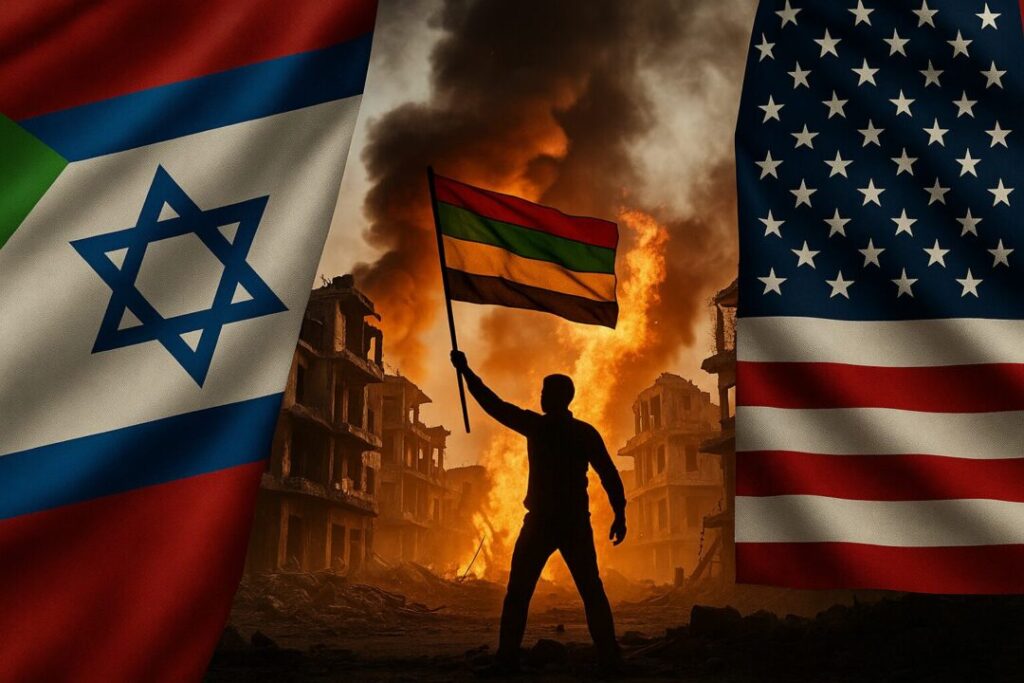As the world watches Ukraine and Gaza dominate headlines, there’s another crisis unfolding with barely a whisper from the mainstream press: brutal violence against the Druze community in southern Syria.
Over the past several weeks, deadly clashes have erupted between the Druze – an ethnic and religious minority – and Bedouin tribes in the Suwayda region.
According to the BBC (July 14, 2025), dozens have been killed as sectarian tensions explode following the collapse of the Assad regime last December.
It’s not just tribal infighting. Israel has now stepped in with airstrikes for the second day in a row, targeting Islamist militias in Suwayda to defend the Druze from being overrun.
Reuters reported on July 15, 2025, that the strikes are part of Israel’s plan to keep a buffer zone near its border and to protect one of the few pro-Israel communities in the region.
This isn’t a random civil war story from halfway around the world. It’s about what happens when the United States retreats from the global stage, radical Islamists take over, and weak media coverage allows violent regimes to act with impunity.
It’s also about defending religious minorities – something conservatives have always stood for, especially when Christians and other non-Muslim groups are the ones in danger.
Who Are the Druze and Why Should We Care?
The Druze are a small ethnoreligious group that branched off from Islam over 1,000 years ago.
Their beliefs are secretive, their numbers are small (about 1 million worldwide), and they’ve long been a target of persecution, especially from Islamic extremists.
Over half of the Druze population lives in Syria, and they’ve built local militias to defend themselves.
Now that Ahmad al-Sharaa – a former al-Qaida member – is Syria’s new president, their worst fears are coming true.
His government, which AP News called “Islamist-dominated” in a July 14, 2025, report, doesn’t exactly have a reputation for protecting minorities.
Back here at home, the silence is deafening.
Aside from Israeli media and a few outlets like Al Jazeera, the Western press has all but ignored the slaughter in Suwayda.
Reset DOC, a publication that tracks global democracy and minority rights, criticized this selective silence in a January 7, 2025, piece, noting that coverage often depends more on political bias than humanitarian concern.
That bias has consequences.
Why This Matters in the U.S. and in Nevada
Nevada is home to a small but tight-knit Druze-American population, particularly in parts of Las Vegas and Henderson.
Some have relatives in Suwayda and the surrounding areas. They’re watching this unfold with fear and frustration – and with no attention from Washington.
In fact, some Israeli Druze are trying to cross into Syria to help their family and friends fight back.
Reports trending on X show videos of men from the Golan Heights – a disputed area Israel has controlled since 1967 – saying they can’t just sit back and watch their people be wiped out.
The Golan itself has about 20,000 Druze residents, according to The Guardian (December 11, 2024), many of whom have long refused Israeli citizenship.
But now, even those with doubts about Israel are realizing it may be their only protection from radical Islamists just across the border.
What Critics Say and What They Miss
Critics of Israel’s involvement say the strikes could escalate the war or drag the region into deeper conflict.
Some human rights groups have called for a ceasefire and negotiation instead of military action.
But here’s the thing: when extremists backed by Iran or al-Qaida-style militias come knocking, you don’t “negotiate.” You defend your people.
That’s something conservatives understand. It’s why many supported President Trump’s tough approach to foreign policy and religious freedom.
Peace through strength still matters.
The Druze in Syria are being hunted by radicals while the world looks the other way. Israel is doing what it must.
And here in the U.S., it’s time to ask why our leaders – and our media – won’t stand up for one of the most endangered communities in the Middle East.
Ignoring this violence won’t make it go away. Speaking up just might.
This article was written with the assistance of AI. Please verify information and consult additional sources as needed.



